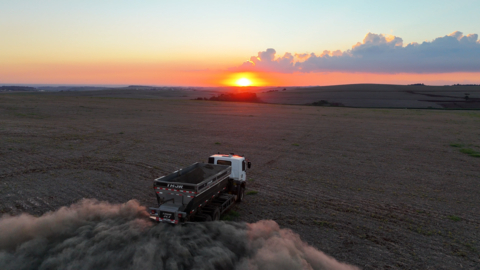Terradot's enhanced rock weathering research in Brazil gets boost from Microsoft agreement

Climate tech company Terradot will conduct one of the most extensive scientific monitoring programs yet for enhanced rock weathering (ERW), following an agreement with Microsoft to purchase 12,000 tonnes of carbon dioxide removal (CDR) credits between 2026 and 2029. The project is centered on Terradot’s operations in Brazil, where the company is scaling ERW deployment.
The announcement of the deal explains Microsoft's funding will enable Terradot to expand research well beyond current registry requirements for carbon credit verification. Terradot is implementing advanced monitoring that includes denser soil and water sampling and watershed-level analysis. These efforts are aimed at improving understanding of ERW’s impact on natural systems and refining models for carbon removal validation.
Terradot’s research team, including academic partners, sees the expanded monitoring as critical to building trust in ERW. The company also intends to develop lower-cost measurement and verification approaches, enabling wider adoption of the method in the future.
According to Terradot's website, the company has already spread tens of thousands of tonnes of rock across farmland in Brazil. The region’s tropical soils and warm, wet climate accelerate the weathering process, while nearby quarries reduce transport costs. The company expects to deliver its first carbon removal credits in late 2025.
By performing large-scale field research in Brazil, Terradot is positioning itself at the center of global efforts to evaluate and scale ERW. The agreement with Microsoft adds to a growing number of commitments Terradot has secured, reflecting rising demand for scientifically validated carbon removal solutions.